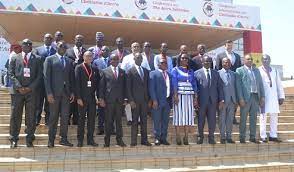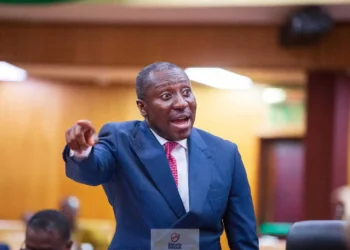The Ministers of Security and Defence of member States of the member countries, which are Benin, Ghana, Togo, Burkina Faso, Cote d’Ivoire, Mali and Niger came together during the just ended Ministerial Session of the Accra Initiative to address cross border security issue.
The Ministerial Session of the Accra Initiative (AI) was held to make further deliberations on the need for joint actions by member States to address cross border security issues. Not limited to just the member states, other participants were some representatives of the United Nations (UN) and the Economic Community for West African States (ECOWAS).
The Accra Initiative was established in September 2017, with the aim to promote intelligence and security cooperation between the security agencies of member states. Its formation was necessitated by the urgent need to address the deteriorating security situation in the Sahel region and curb the southward drift of the threat of terrorism to Coastal West African States.
Mr Albert Kan-Dapaah, Minister for National Security, during the opening session of the program mentioned that, with the strong collaboration between African countries, it would be very easy to win fights against terrorism in the sub-region.
According to the minister, the deteriorating security situation in some African countries did not mean efforts of leaders of the affected countries to combat violent extremism were in vain.
But rather, the minister explained the fact that the situation could have even been worst without some interventions like intelligence sharing and capacity building being put in place to monitor situations and avert further misfortunes.
The Accra Initiative (AI) is an initiative for the dedication towards ensuring that terrorists and extremists do not take refuge in its member states, he added.
Contributions on how to curb the Issues of Terrorism by AI Representatives
Dr Abdel-Fatau Musah, the commissioner of political affairs, peace and security of the ECOWAS Commission, in his remarks explained that terrorism was steadily gaining foothold in the region, especially in the Sahel with the onslaught of Boko Haram in Nigeria and the southward movement towards the coastal member states especially in Benin, Togo and Cote d’Ivoire.
“The incremental gains of a combination of determined efforts by the Multinational Joint Task Force (MNJTF), counterterrorism operations across the Lake Chad Basin as well as inter terrorists conflicts which had to some extent degraded the capacities of terrorists groups such as the Boko Haram.”
Dr Abdel-Fatau Musah
Dr Musah further stated that, the worrisome incursion of terror acts in Benin and Togo in these current times and attacks in Cote D’Ivoire in 2016 confirmed the spread of the terrorist menace towards coastal member states.
“It is worthy to note that the three areas of effort of the AI, namely, information exchange between intelligence services and security forces, training of intelligence services and security forces and the joint military operations at the borders of member states, correspond very well for the eradication of terrorism in the ECOWAS region.”
Dr Abdel-Fatau Musah
Ms Giovanni Biha, a representative of the United Nations, also contributed that, due to commitment of member countries of the AI cross border cooperation, joint military operations to address the terrorist threat had been largely possible by virtue.
Ms Biha assured her readiness to continually support the AI in achieving its objectives.
Mr Irchad Razaaly, the ambassador of the European Union (EU) to Ghana, advised that thinking outside the box to find innovative solutions to counter terrorism in the sub-region was very necessary.
READ ALSO : Saglemi Project: Governments Must Stay Away From Housing Projects – Franklin Cudjoe






















